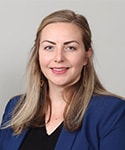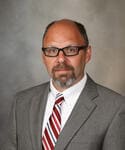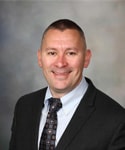Research
/prod01/channel_2/media/mccms/content-assets/academics/residencies-and-fellowships/emergency-medical-services-fellowship-minnesota/1024X512_EMS-research-poster-presentation.jpg)
As one of the three shields of Mayo Clinic, research is essential to its interlocking shields of clinical practice and education. Our goal is that our EMS fellows have a clear understanding of how new information is generated and integrated into the practice of medicine.
Your research opportunities within the Mayo Clinic Department of Emergency Medicine and Mayo Clinic Ambulance Service are outstanding. Faculty within the Division of Prehospital Medicine and the Department of Emergency Medicine as a whole are engaged in clinical and translational research and enjoy providing guidance and support throughout the process of designing and conducting a meaningful and rewarding research project. Our EMS fellows receive outstanding mentorship and have access to world-class research resources and expertise.
As front-line patient care providers, researchers in the Mayo Clinic Division of Prehospital Medicine focus on patient and staff safety, operational medicine, keeping patients out of the hospital through remote monitoring, community paramedicine, and more. In addition, researchers are also engaged in innovative studies related to epidemiology, health equity, quality improvement, and medical education.
Available to the EMS fellow is the Division of Emergency Medicine Research, which is a strong clinical research unit embedded inside Mayo Clinic's Emergency Department. Highly experienced personnel to include research coordinators, a scientific director, and statistical support all allow the division to support diverse research projects.
We will aid you in generating ideas and provide all the support to see your project succeed. We have a dedicated research team that will help you develop your methodology, as well as statistical support for your projects. Mentorship can occur from within or external to the Department of Emergency Medicine at Mayo Clinic. We can even provide protected research time in your curriculum to focus on your work.
Those particularly interested in research are able to attend Mayo Clinic’s Fundamentals of Clinical and Translational Science (FunCaTS) program for free during fellowship. FunCaTS is a combination of 13 online modules strategically packaged together to enable medical professionals to expand their knowledge of the components of clinical and translational research. These components provide the fundamental knowledge to promote understanding of the process of bringing discoveries to the bedside and then to the population.
Many of our fellows publish their work and present at national conferences, including ACEP, NAEMSP, and SAEM. A project can be as big or as small as you would like. Regardless of your goals, you will leave fellowship confident in your ability to interpret and apply the most current literature and contribute in a meaningful way to the advancement of EMS.
Journal clubs
Minnesota (+ Nebraska) EMS Joint Journal Club
The combined EMS fellowship programs in Minnesota (Mayo, HCMC & Regions) and Nebraska participate in a joint journal club on a quarterly basis to evaluate novel, emerging literature within the EMS specialty. This also serves as an excellent opportunity to network and engage with your regional co-fellows and network with other EMS physicians.
Department of Emergency Medicine Journal Club
The EMS fellow is welcome to participate in the ongoing quarterly journal clubs hosted by Mayo Clinic’s Department of Emergency Medicine, often in faculty homes. This journal club helps fellows practice critical appraisal of literature and engage in discussions on research methodology and interesting perspectives on clinical questions. In addition, it is designed to facilitate relationship building between the fellow, residents, and faculty outside of the clinical environment. The department also hosts multidisciplinary journal clubs involving faculty and residents from other specialties such as surgery, radiology, and more to further enrich discussions and strengthen interdepartmental relationships.
Previous journal clubs and Grand Rounds can be found at our department’s AlwaysOnEM podcast.
Exceptional research resources
Mayo Clinic's Department of Emergency Medicine has numerous resources to support fellow research, including:
- Weekly Emergency Medicine Research Committee office hours for project guidance
- Access to Mayo’s Clinic’s unified electronic health record including all Mayo enterprise sites
- ED study coordinators (assist with IRB, patient enrollment)
- ED Data Analyst to assist with data extraction from the electronic health record
- ED statistician to assist with study design and data analysis
- ED small grant program
- Summer students to assist with chart review
- National database access (NEDS, NHAMCS, NEAR)
- REDCap database
- Survey Research Center
- Scientific Publications (manuscript editorial and publication support)
- Medical Illustrations
- Center for Clinical and Translational Science
Faculty research profiles
The Division of Prehospital Medicine faculty are involved in research. Links to a few of their research profiles and publications are below.
 |
Sarayna McGuire, M.D., M.S.Research interests:
|
 |
Matt Sztajnkrycer, M.D., Ph.D.Research interests:
|
 |
Chris Russi, D.O.Research interests:
|